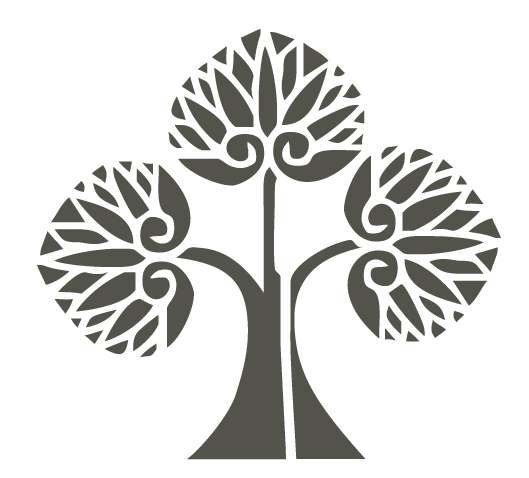A chat with a fellow producer recently veered into total taboo territory: should wine producers provide free wine at tastings at events, in exchange for the value offered by the event organisers? My friend made an interesting point: no one ever asks a restaurant to provide free food (other than some low rent food bloggers), so why is it still normal to expect wineries to cover the costs & time involved?
If you can’t be bothered reading to the end, this post is not saying that wineries shouldn’t ever pour wine for free, it just aims to highlight that in some instances the terms of the exchange are poorly considered, and therefore, the status-quo might be worth questioning.
This is typically how it works: said event organiser invites wine producers to participate in a curated event. The fee varies hugely – often it’s free, smaller events might charge $200 – $400 and bigger events routinely charge $800 – $1600 (the Good Food and Wine Show weekend, as an example). Apart from some pre-event promo, we are typically offered a table, a bag of ice and some space to set up some wines, merch and signage. From that space we offer free tastings for 2-5 hours. We can usually sell wine and also encourage the guests to share their email address. The event organiser provides the promotion, sells and manages tickets sales and supplies insurance, glassware, the venue, support staff & licensing. The event organiser often also sells wine at the event and by way of ticket sales, also builds their database, which is often used for post-event sales.
There are plentiful variations on this model: sometimes the events are shorter or longer, sometimes they are ‘tokenised’ meaning that the guests receive X amount of tasting tokens for their ticket, and have to purchase more to keep tasting. Sometimes the guests can buy wine by the glass. Sometimes there are accompanying ‘meet-the-maker’ programs that can add value by offering closer contact with ‘higher value’ guests.
Keep in mind that the event organiser has multiple streams of potential income here: guest ticket sales, winery participation fees and if they sell wine, a margin on that too. Triple threat.
Essentially it’s built on the assumption that for the winery, exposure to attendees equals promotional and sales value, which means that the free stock and labour investment is a fair exchange. Because of the variation in costs, it sometimes works and sometimes doesn’t. A recent small event we attended featured 6 producers and 200 or so guests – a ratio that I was happy with. It cost $200 in fees, $80 in fuel, $200 in accommodation, 14 bottles of wine, 7 hours of travel and 4 hours of event participation. If I value the wine stock at wholesale, that’s $336. Let’s not even bother factoring in labour. We sold $567 worth of wine. But hey, the ice was free.
I have assumed that if I get in front of guests with a nice smile, nice wines, nice branding and some energy, I’ll get the value. But the thing is, from the guest perspective – a ticket provides (potentially) hours of free tastings. That is a shit load of wine. Five tastes is roughly a standard drink so after a glass or two, we, the winemakers, all kind of blend in. How do I know this? I’ve witnessed it in real time over and over again, but I also spent 8 years teaching wine courses to the exact people who attend these tastings and events. I am nosy, and I love to hear what people get out of it. I know for a fact that alcohol impairs memory to the point where they’d show up for class on a Wednesday and not be able to remember one wine brand from an event they attended on the weekend. So the assumption that attending is a good brand-building investment, I think, is unreliable.
That’s not to say there is never value in participating. It is a chance to get feedback on the wines, hopefully to sell some too. I love the opportunity to meet and catch up with industry peers, to network with buyers and organisers, to share our story with consumers and support the event organisers. Perhaps, it is simply a marketing cost, and we all know marketing costs money – but that doesn’t necessarily always translate into value.
And I don’t want to dismiss the intention of the event organisers. They are sometimes done really well and I’m not here to do a takedown on the events industry. Insurance and licensing are massive headaches, it takes effort and skill to curate, promote, manage and execute successful events that are economically viable for everyone involved. I am all for the way that they bring wine to urban areas, that they connect wine lovers to makers, that they are passionate enough to keep going in a post-pandemic world where risk & liability is sky-high. I know that in some instances, relationships are built with customers that offer immense value to the producers.
[On a somewhat related tangent, I do however have one significant complaint to make and that is about event organisers curating events that don’t strive for an equal-ish mix of male and female producers. It is well known that women winemakers are in significant minority. And in the process of curating an event, the organiser has a small opportunity to exercise some power in response to this. To the event organisers who seem spectacularly incapable of considering this as part of their wider responsibility to the industry: try harder. There is literally a list of female (and other minority) makers hosted online (thanks to Women and Revolution) and if you’re not putting in active effort to get some balance happening, then you are simply incompetent. It is smart business, smart industry participation, smart optics, and by not doing it, you have made a choice to uphold & actively promote the framework that allowed this imbalance in the first place. Please, don’t @ me with the bullshit excuses. And lastly, if you’re getting through that database and female producers keep saying no, then the problem is you, bro].
Anyway, back to the original query: if the tangible benefits are limited, why participate at all? I have some guidelines I like to apply to help me decide: firstly, I’m more likely to participate in events hosted by companies that have supported us in some way. I like to see events that are well organised and well promoted to a mindful ratio of enthusiastic wine lovers – particularly if there is a theme that helps to build a narrative around the event. I will be delighted to participate if they recognise my costs and efforts and seek to minimise them, even a little: initiatives like tokenised tastings and selling wine by the glass are brilliant, as is limiting the timeframe of free wine (two hours is plenty in my opinion), not overselling tickets, offering pre-event or follow up promotional opportunities to the database, offering strategic social media promotion, offering to pay for the tasting stock or committing to buy a certain amount after the tasting to then on-sell. If the event organiser is generating multiple revenue streams, then these things should be minimum standards.
Interstate travel is difficult to justify in general and unless it overlaps with other trade work, I generally can’t get it to add up.
I generally choose not to participate in tastings where the event is the core business of the event organiser. This is because these companies are structured to profit from the event itself, often without due consideration of my investment. All power to them – and for bigger wineries I can see how this adds up, but for me, my ‘free’ tasting stock, labour and travel budget doesn’t exist just to prop up their balance sheet, particularly when the events are oversold, poorly organised and/or run for too long. The sense of blind obligation in this scenario is irritating, particularly when what is offered in return is minimal. Instagram, website or newsletter promo, getting the wines stocked, ‘exposure’ to wine enthusiasts, or even just the glory of simply being invited just doesn’t cut it. I also won’t participate if the event is too big, if the glassware is crap, if there is no responsible serving of alcohol mitigation, if I can’t sell direct and, kind of significantly, if I think the people involved – producers and organisers, are dickheads.
So, what’s the point of all of this? To remind wineries that just because you have been invited doesn’t mean you should attend. Calculate your time and costs accurately and weigh up how this fits into your marketing resource allocation options. It is also to remind event organisers that most wine businesses are tiny one or two person operations. Our product costs money to produce, so expecting us to participate without offering something valuable in return is not necessarily exploitative, but it is certainly unimaginative. Working to improve the status-quo helps to maintain a strong & diverse events industry that will benefit everyone involved.

High Plateau Enterprises trading as Eminence Wines: Victorian Liquor Licence #32806630. It is against the law to sell or supply alcohol to, or to obtain alcohol on behalf of, a person under the age of 18 years.

